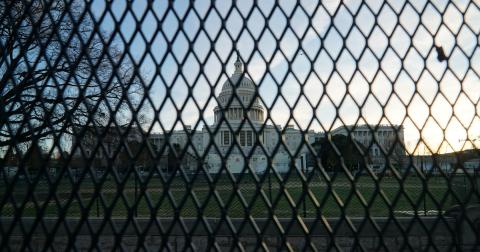Anyone who has followed the pro-voter, pro-democracy reform space for even a small period of time knows America’s political processes are flawed. It may not even come as a surprise to find out that the US is not even considered close to being the world’s role model in democracy.
For the past 6 years, the US has been categorized by the Economist Intelligence Unit’s (EIU) Democracy Index as a “flawed democracy.” In 2021, the index ranked the US 26th out of 167 countries on a scale that accounts for electoral process, government functionality, political participation, political culture, and civil liberties.
The nation’s score is also on the decline. In the most recent index, the US scored a 7.85 out of 10. This is down from 7.92 in 2020. The US dropped a ranking as a result of the declining score.
“Pluralism and competing alternatives are essential for a functioning democracy, but differences of opinion in the US have hardened into political sectarianism and institutional gridlock,” the EIU report states.
In other words, government functionality and political culture were identified as the two critical areas behind the US’s decline. However, this statement also points to a deeper problem that was highlighted in a 2017 Harvard Business School Study by Michael Porter and Katherine Gehl: A lack of competition and array of ideas is crippling the political industry.
US elections are solely treated as a zero-sum contest between two warring parties. Representation, competing ideas, and lasting solutions fall by the wayside for the private interests of these parties and their members. Since current incentives do not focus on representation, both sides focus only on what they need to do to win.
“Obstruction will worsen ahead of the November 2022 mid-term elections — which could flip the majorities in both houses of Congress — as neither party will want to appear to be ceding ground to the other,” the report explains.
The report says the 2020 elections helped keep the US’s score from further dipping. Turnout was notably higher as access to the ballot was much easier for voters during the COVID-19 pandemic. The inauguration of President Biden also “proceeded smoothly” despite the January 6 insurrection and attempts to challenge the election results.
EIU warns that despite the boost the election had on America’s score, partisan gerrymandering and voting law changes across the country that would result in more restrictions on voter access compared to 2020 could result in a lower score.
Americans don’t need a report like this to tell them there is something wrong with the US political process. They see what is wrong with it on their social media feeds and TV screens, they hear it in the rhetoric of candidates and elected officials, and they largely agree that they are not being represented by those they elected to serve the public interest.
However, reports like EIU’s Democracy Index bolster the call for election reforms that change the incentives in US politics to prioritize representation and accountability. Until we increase competition for voters and in the marketplace of ideas, the US’s ranking in the world will continue to diminish.
